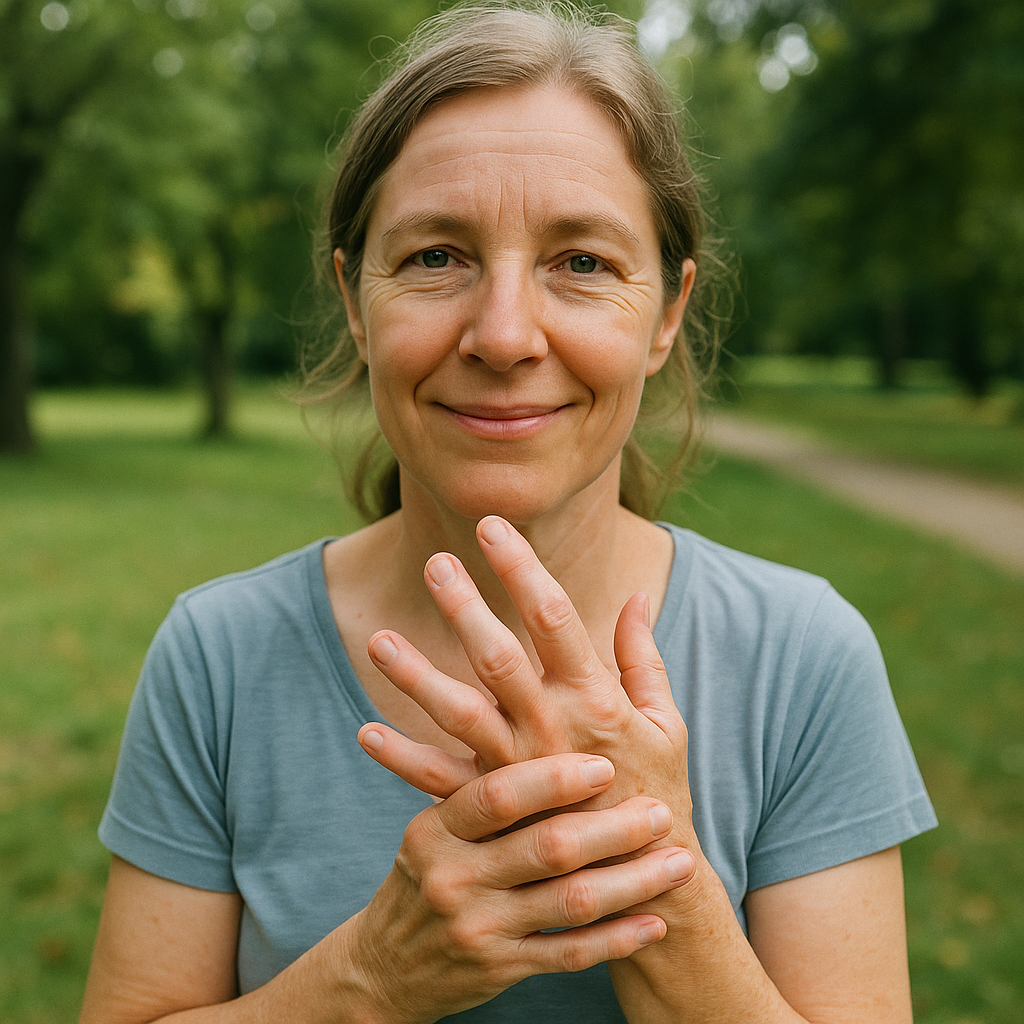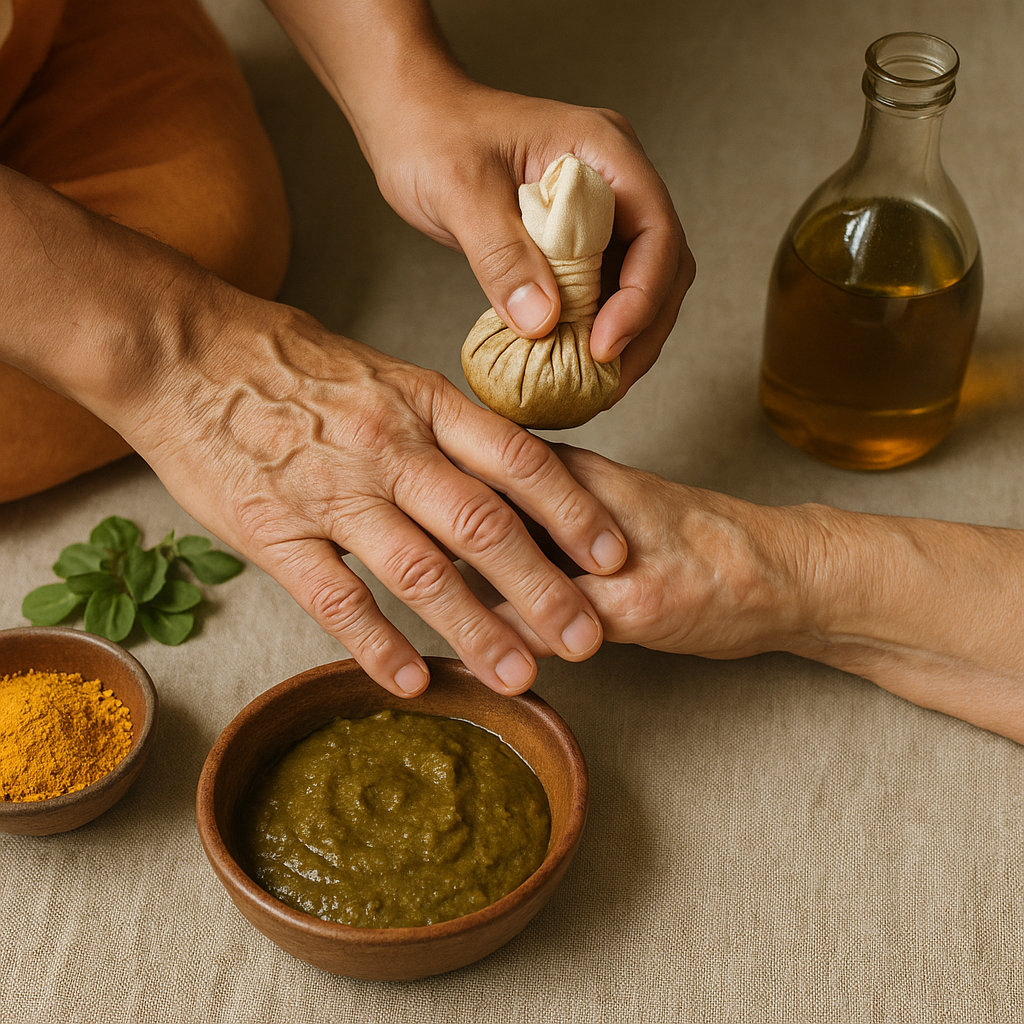Ask Ayurvedic doctor a question and get a consultation online on the problem of your concern in a free or paid mode. More than 2,000 experienced doctors work and wait for your questions on our site and help users to solve their health problems every day.
How to Cure Rheumatoid Arthritis Permanently with Ayurveda

Let’s not sugarcoat it—rheumatoid arthritis (RA) can be brutal. If you’ve ever woken up with stiff joints, aching fingers, or that weird exhaustion that hits even after a full night’s sleep, you know what I mean. And if you’re here looking for how to cure rheumatoid arthritis permanently, you're probably done with just “managing symptoms.” You want relief. Real, lasting, maybe even life-changing relief. And honestly? Ayurveda offers something surprisingly deep and hopeful.
Let’s be clear upfront: mainstream medicine says RA can’t be cured—only managed. But Ayurveda? It doesn’t quite agree. In fact, Ayurvedic treatment for rheumatoid arthritis isn’t just about masking pain or suppressing inflammation. It’s about digging up the root cause. Detoxing the body. Balancing what’s gone off track. And yes, sometimes—just sometimes—finding what might feel like a rheumatoid arthritis cure.
Too good to be true? Maybe. But also maybe not. Let’s get into it.

What Is Rheumatoid Arthritis?
Symptoms and Progression
RA isn’t your typical joint issue. It’s not wear-and-tear like osteoarthritis. This is full-on autoimmune warfare. Your own immune system mistakenly attacks your joints—especially the small ones in your hands, wrists, and feet.
At first, you might notice morning stiffness that lasts longer than it should. Then come swollen joints, fatigue, maybe even low-grade fever. Over time, if not managed, joints get deformed. Daily life—writing, typing, even brushing your teeth—can feel like a battle.
It’s chronic. It’s unpredictable. And yeah, it’s exhausting.
How It Affects Joints and Immunity
Here’s the twist: RA isn’t just about joints. It’s systemic. Think of your immune system getting its wires crossed, unleashing inflammation not just in your knees or fingers, but potentially in your heart, lungs, or eyes too.
That’s why permanent joint pain relief isn’t as simple as popping an anti-inflammatory pill. You need a full-body reset. Which is exactly where Ayurveda comes in.
Don't wait or self medicate. Start chat with Doctor NOW
Can Rheumatoid Arthritis Be Cured?
Medical vs Ayurvedic Approach
Let’s talk realism. Conventional medicine says, “There’s no cure—but here’s a biologic or DMARD to slow progression.” Which is fair. These drugs help a lot of people. But they come with side effects. Liver monitoring, infections, immune suppression—you get the picture.
Now contrast that with Ayurveda. Here, RA (called “Amavata”) is seen not just as a disease but as an imbalance—mostly between Vata dosha and something called Ama (undigested toxins). Instead of shutting down symptoms, Ayurvedic practitioners go after why the body is inflamed in the first place.
It’s not quick-fix stuff. But it’s holistic. Thoughtful. And sometimes, more effective than you'd think.
Managing vs Healing
Big difference here. Modern medicine excels at managing flare-ups. Ayurveda? It’s more about healing from the inside out. Removing Ama, calming Vata, restoring agni (digestive fire). That’s why joint pain natural remedies from Ayurveda—like herbal oils, anti-inflammatory herbs, and detox therapies—feel more “healing” than “patching.”

Ayurvedic View on Rheumatoid Arthritis
Causes According to Doshas
Okay, mini crash course: In Ayurveda, everything comes down to doshas—Vata, Pitta, and Kapha. RA, or Amavata, is mostly a Vata imbalance complicated by the buildup of Ama (think sticky, toxic sludge in the body).
When your digestion weakens (low agni), undigested food and emotions create Ama. Vata, which governs movement and dryness, spreads this Ama to the joints. Boom—pain, stiffness, swelling.
Ayurveda’s solution? Clear the Ama, balance the Vata. Restore the body's intelligence.
Ama and Inflammation
This part always intrigued me. Ayurveda recognized inflammation long before the word existed. The concept of Ama explains a lot—from gut issues to foggy brain to, yes, joint pain.
The solution isn’t just to suppress it with steroids or NSAIDs. It’s to eliminate it. That’s where ayurvedic detox for arthritis, especially Panchakarma, starts to shine. More on that next.
Permanent Cure Strategies in Ayurveda
Alright. So if we’re not just masking symptoms but really going for the root—what does Ayurveda actually do to treat RA? The answer is: quite a bit. And it usually starts with a deep clean.
Panchakarma Detox
Ever heard of Panchakarma? It’s not some trendy juice cleanse. It’s an intense, centuries-old purification therapy. And for someone looking for a rheumatoid arthritis cure, this is often the core of treatment.
Here’s how it works in super-simple terms: Panchakarma helps your body let go—of toxins, emotional baggage, undigested waste (Ama), and imbalances in the doshas. It involves five major processes (hence pancha = five), and depending on your body type, condition severity, and the amount of Ama, the sequence and intensity are adjusted.
One common approach for RA includes:
-
Snehana (Oleation): internal and external use of medicated ghee or oils to loosen toxins.
-
Swedana (Sweating therapy): encourages toxins to move toward the digestive tract.
-
Virechana (Purgation) or Basti (Enema therapy): removes deep-seated toxins from the gut and colon, where Vata typically lodges.
I’ll admit—some of this can sound intense, maybe even extreme. But if you’re wrestling with flare-ups every few weeks, or can’t make a fist in the morning without wincing, this kind of full-body reset might be exactly what you need. Many people report relief even after one well-done Panchakarma course. It's not magic—it's method.
Anti-Inflammatory Herbs and Oils
Now, onto the good stuff you can actually take or use—plants, powders, oils. Ayurveda’s got a full toolbox of anti-inflammatory ayurvedic herbs for joint pain. These aren’t bandaids; they’re slow-build healers.
Some top names to know:
-
Guggulu (especially Yogaraj Guggulu and Simhanada Guggulu) – potent in clearing Ama and reducing swelling.
-
Ashwagandha – you’ve probably heard of it. It's a nervine, anti-inflammatory, and Vata pacifier.
-
Shallaki (Boswellia) – honestly, this one should be in every arthritis protocol. It works almost like NSAIDs—but naturally.
-
Turmeric (Haridra) – obviously. But not just in golden milk; Ayurvedic versions use it in very targeted herbal combos.
-
Castor oil – often used in Basti therapy and also as a massage base to reduce deep-seated joint inflammation.
Also, Ayurvedic oils like Mahanarayana Taila or Dhanvantaram Taila are commonly used in external massage. I remember a practitioner telling me once, “You can’t just fix joints from the inside. Sometimes you need to warm and nurture them from the outside too.” That stuck.
So yeah, joint pain natural remedy options in Ayurveda aren’t just oral pills. They’re layered, gentle, and surprisingly effective—if used right.
Diet and Lifestyle Recommendations
Healing isn’t just about detoxing or popping herbs. You’ve gotta feed your body in a way that prevents the return of Ama. And keeps Vata in check. That means… yeah. Diet.
Foods to Avoid and Include
The best diet for rheumatoid arthritis, in Ayurvedic terms, means warming, grounding, and easily digestible. Think:
YES to:
-
Warm soups, cooked veggies, ghee, spices like cumin, ginger, turmeric.
-
Mung dal, rice, stewed fruits.
-
Herbal teas—especially ones that help digestion (like coriander-fennel-cumin mix).
AVOID:
-
Cold or raw foods (they increase Ama).
-
Yogurt, cheese, heavy meats—especially at night.
-
Processed foods, sugar, nightshades (tomato, potato, bell peppers—they're inflammatory for many people).
-
Alcohol and caffeine in excess.
And maybe you’re thinking, “Wait, tomatoes too?” Yep. For some folks with RA, they’re trigger foods. Not for everyone, but worth experimenting with.
Daily Habits for Joint Health
This part is sneaky important. What you do every day matters more than what you do once in a while.
Try:
-
Self-massage with warm oil every morning (Abhyanga).
-
Gentle yoga or stretching. Don’t push through pain—go slow.
-
Keeping your digestion strong—maybe even using Triphala at night.
-
Regular sleep and minimizing stress. (Yes, stress = Vata imbalance = worse pain.)
Sounds basic, maybe even boring. But it adds up. Especially when you’re looking for permanent joint pain relief, not just a good day here and there.

When to Seek Professional Help
Now, before you throw out your meds and start boiling turmeric and guggulu in your kitchen—hold up.
There’s a reason Ayurveda has survived for thousands of years. It’s not just the herbs or massages or detoxes. It’s the wisdom. The ability to personalize. And that part? You need a real pro for it.
Warning Signs and Flare-Ups
So, when should you get help?
-
If your pain is spreading fast
-
If joints are visibly deforming
-
If there’s constant fatigue, fevers, or weight loss
-
If what used to be occasional stiffness is now daily suffering
That’s when you need an experienced Ayurvedic doctor, preferably someone who’s worked specifically with arthritis and Ama-related conditions. Because the wrong herb or diet, even if it’s “healthy,” can actually make things worse.
Role of Ayurvedic Doctors
Look, there’s DIY, and then there’s deep healing. A proper Vaidya (Ayurvedic physician) will take your prakriti (body type), disease stage, digestion, mental state—everything—into account. It’s not one-size-fits-all.
They’ll guide your ayurvedic detox for arthritis, decide if you need Panchakarma, tweak your food, herbs, lifestyle. It’s like having a wellness detective—and healer—on your side.
So yes, do your research. Experiment with gentle remedies. But when in doubt? Talk to someone trained in this system.
Conclusion
Let’s circle back.
The question was: how to cure rheumatoid arthritis permanently. And here’s the honest answer—it depends.
If you’re expecting a magic pill, even Ayurveda doesn’t offer that. But if you’re open to changing how you eat, think, move, rest, and cleanse, then yes—Ayurveda absolutely gives you tools to heal deeply.
From ayurvedic treatment for rheumatoid arthritis using time-tested herbs and oils, to Panchakarma detox, to daily lifestyle tweaks and food awareness, it’s a powerful (and grounded) system.
And maybe the most human part of this whole thing? It’s slow. But it works with you, not against you. And sometimes, that’s exactly what we need.
FAQs
Can rheumatoid arthritis be cured permanently with Ayurveda?
Ayurveda doesn’t “cure” in the pharmaceutical sense but aims for long-term remission and deep healing. Many patients report lasting relief when following a personalized protocol involving detox, diet, herbs, and lifestyle.
What herbs help with chronic joint pain and stiffness?
Some of the most effective include Ashwagandha, Shallaki (Boswellia), Guggulu, and Turmeric. Oils like Mahanarayana Taila can also ease inflammation externally.
What is the difference between RA and osteoarthritis?
RA is an autoimmune condition causing systemic inflammation and symmetrical joint pain. Osteoarthritis is degenerative, usually from wear and tear, and often affects weight-bearing joints like knees and hips.
How does Panchakarma help in treating arthritis?
It removes toxins (Ama) from the body, balances doshas (especially Vata), and resets digestion. This reduces inflammation, clears blockages, and supports joint healing at the root level.

